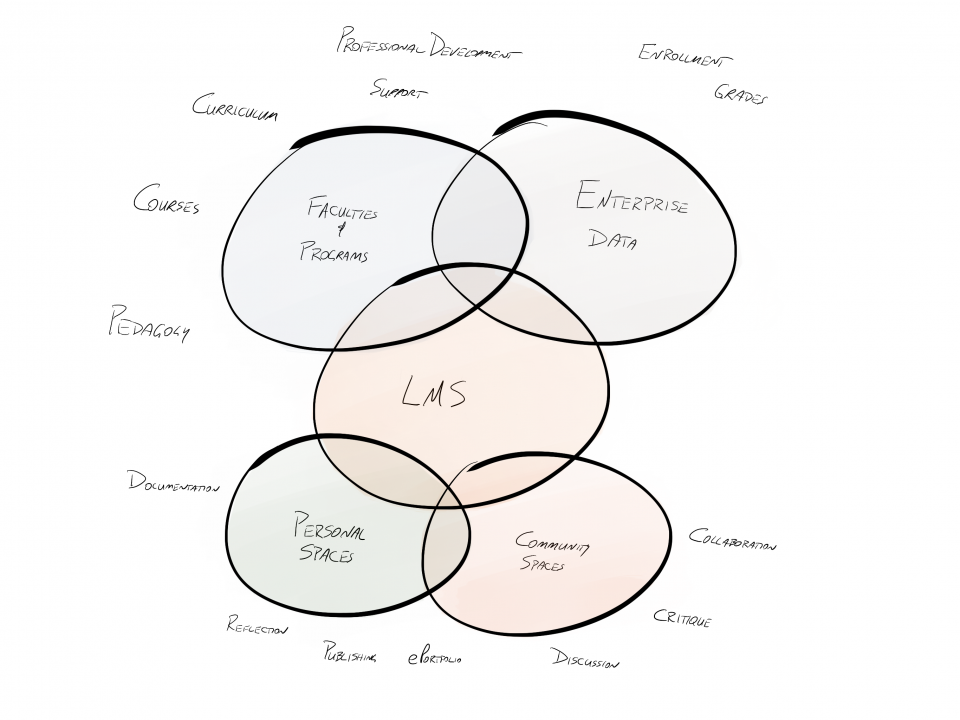It's fashionable to rail against the LMS, to lament the shackles of institutional constraint and to advocate for abandoning the concept in exchange for a DIY nirvana. There's definitely something to the no-LMS movement, because it emphasizes individual control and grassroots innovation. But, there is also a role for the LMS in higher education. If for no other reason than the simple reality that most instructors, and many students, aren't ready, willing, or able to forge their own solutions. Nor should they be required to. The DIY hobby craftsperson ethos is inspiring, but institutions have an obligation to provide tools to enable their faculty, students and staff. The LMS is only part of that - but I think it is a core part.
From an institution's perspective, the LMS is the glue that holds everything together. It provides access to courses. It ties grades to the registrar's office. It provides a core set of tools and resources for offering courses online. It's not the whole widget, but it's an important part of it.
Much of the fun and innovative work happens outside of the LMS - blogs, wikis, collaborative assignment managers, etc... But, even non-LMS platforms start to take on the characteristics of the conventional LMS - tracking students' activity, providing access to resources, connecting assignments to grades, etc... Even a grassroots No-LMS environment eventually grows to resemble an LMS-like space.
And, there is some interesting innovation going on within the "conventional" LMS - with some really compelling things showing up to support thoughtful course design, effective assignment aligned with the goals of instructors and students, and the potential to blur the traditional boundaries that restrict activities within the LMS. It's not so much the tool that matters, but what you do with it. I've seen profs do really interesting things with our creaky installation of Blackboard 8. And, I've seen profs do downright traditional and boring things with our non-LMS campus blogging platform. It's not the tool that defines creative teaching and learning.
So, I look at the LMS not as shackles of institutional control, but as a means of providing a set of tools to individuals, to ensure that we're doing a decent job of teaching online. I'm up to my eyeballs with campus LMS requirements documentation, so can't comment much more than that at the moment. But, I believe the LMS is important as an equalizing platform. And, that people (faculty, students and staff) should be encouraged to explore and build both within and outside the LMS.
